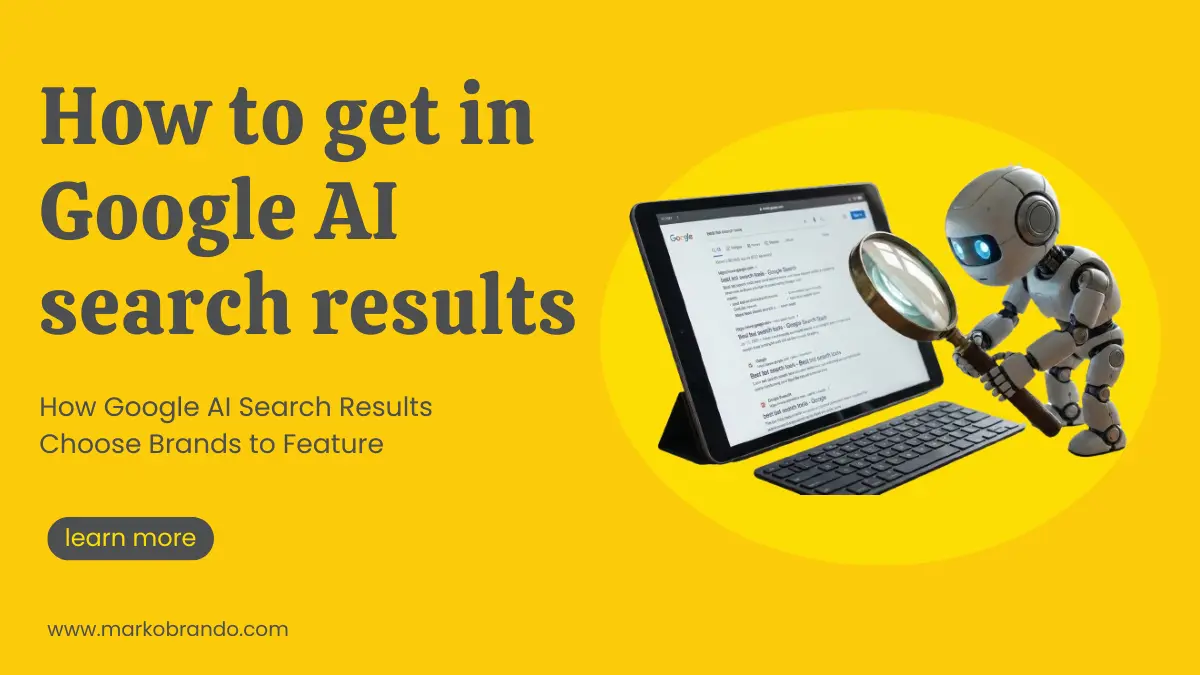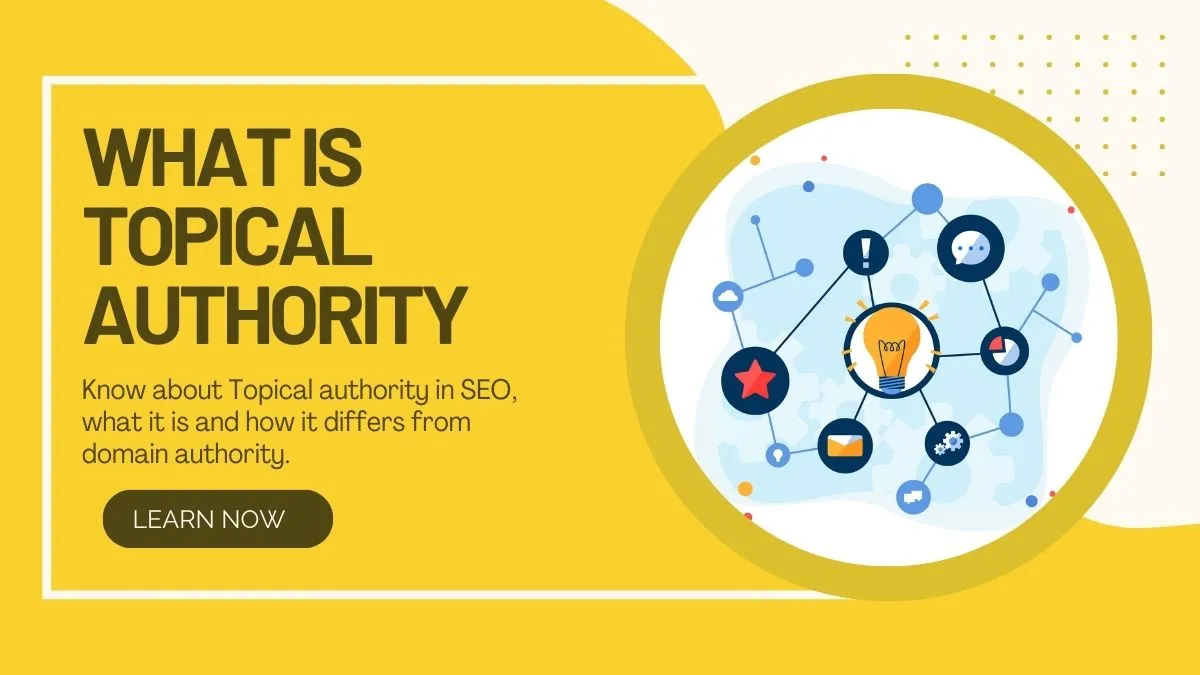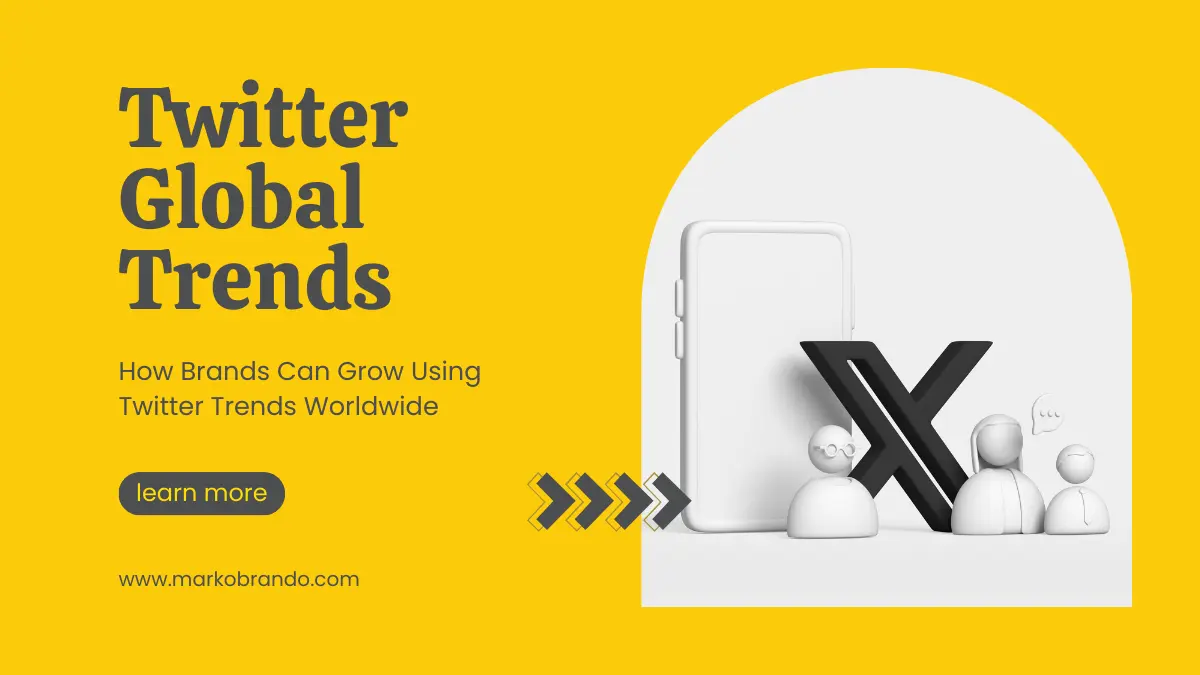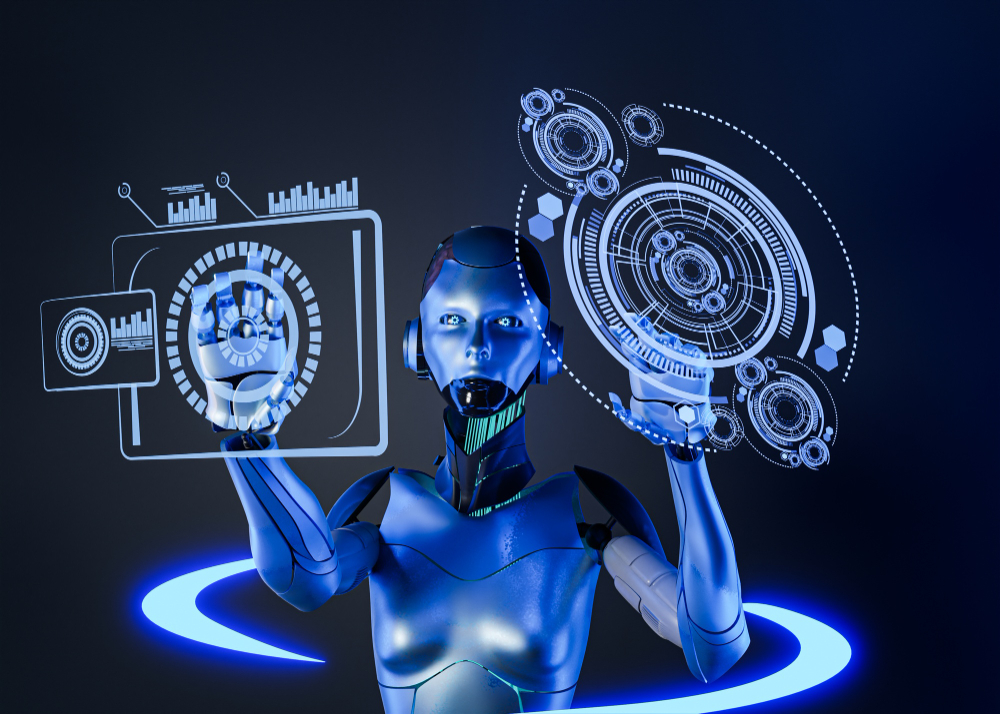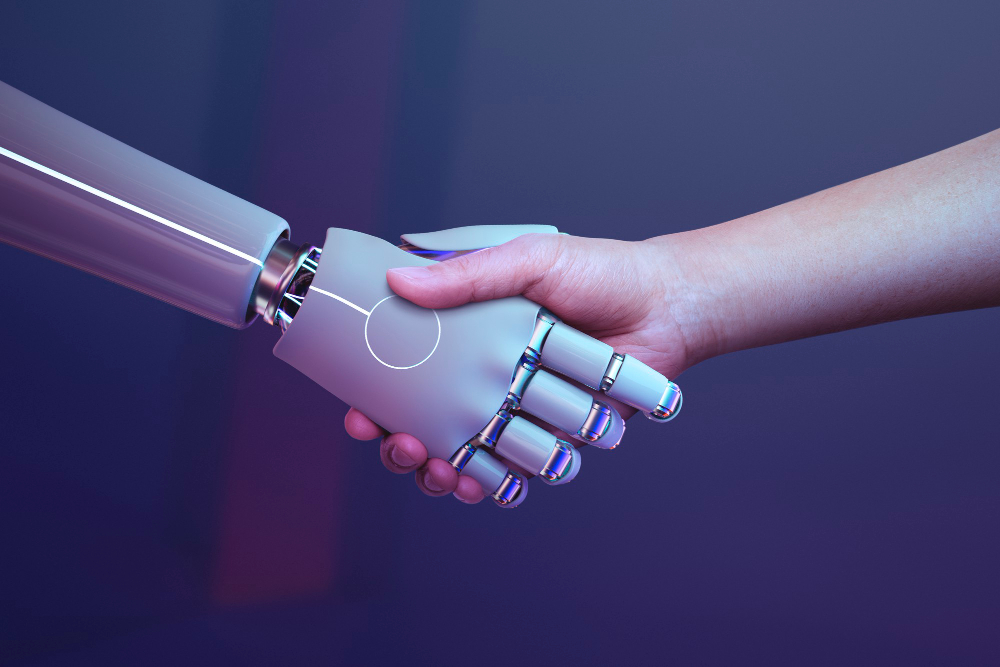
AI in Digital Marketing: Role, Guide & Impact
Key Takeaways:
AI has revolutionized the digital marketing landscape, making it possible for brands to deliver more personalized and efficient campaigns.
AI digital marketing strategies leverage data-driven insights to optimize targeting, boosting engagement and conversions.
From chatbots to predictive analytics, AI tools enhance user experience and streamline operations.
Understanding the advantages and limitations of AI in digital marketing can help businesses navigate this evolving landscape.
Imagine a digital world where data-driven decisions happen instantly, your favorite brands anticipate your needs, and ad content feels so personalized, it could be crafted just for you. That’s not magic; it’s the power of AI in digital marketing. As AI technology continues to develop at an unprecedented rate, its role in digital marketing isn’t just expanding—it’s reshaping the entire landscape. This blog breaks down the role of AI in digital marketing and explores how this transformative technology is helping marketers enhance their strategies for greater precision, efficiency, and impact.
AI in Digital Marketing? How Come?
AI might sound like science fiction, but it’s a growing reality in digital marketing, altering how brands connect with consumers. The role of AI in digital marketing has grown immensely, primarily due to its ability to process vast data volumes quickly and accurately and provide actionable insights.
By using Machine Learning and Predictive Analytics, AI allows marketers to gather a comprehensive view of customer preferences, behaviors, and even forecast future actions. For instance, AI can assess browsing histories, purchase habits, and interactions across platforms, creating a profile that helps marketers deliver personalized experiences at every stage of the customer journey.
Through sentiment analysis, AI can evaluate customer emotions in real-time which enables brands to tailor messages that resonate. This precise targeting and personalization form the core of modern digital marketing and demonstrate why AI has become indispensable for marketers. AI is essentially the backbone that supports personalized experiences and delivers the right message to the right person at the right time.
Key Factors Driving AI Adoption in Digital Marketing
Data Explosion: The internet has become a data powerhouse, and AI helps brands and marketers process this information, turning raw data into actionable insights.
Consumer Expectations: Modern consumers expect personalized experiences, and AI is crucial in meeting this demand by analyzing user preferences and behavior. With AI, brands can offer tailored recommendations, products, and messaging that resonate individually with each consumer.
Competitive Advantage: AI-driven strategies can help businesses outpace competitors by responding to trends faster and engaging audiences more effectively.
Efficiency Needs: AI improves operational efficiency by automating repetitive tasks. This allows the marketing team to focus on more strategic, creative aspects of the campaign,ultimately saving time and resources, boosting productivity and ROI.
Benefits of AI in Digital Marketing
The integration of AI in digital marketing brings numerous benefits that help streamline and enhance various aspects of marketing. Key benefits include:
Better Targeting and Audience Segmentation: An AI digital marketing strategy can break down large audiences into smaller segments based on precise behaviors and interests, allowing marketers to target groups more accurately.
Automated Customer Service: AI-driven chatbots and virtual assistants respond to customer queries 24/7, improving service efficiency and user satisfaction.
Predictive Analytics: AI uses historical data to predict future behaviors and trends, enabling brands to plan marketing campaigns based on likely consumer actions for better outcomes.
Content Optimization: AI tools can suggest content variations that resonate best with specific audience groups.
Optimized Advertising: AI can analyze campaign performance data in real time, making adjustments on the go to ensure maximum effectiveness and minimize wasted ad spend.
How Do Digital Marketers Use AI?
Digital marketers use AI across a wide range of applications. From automation to analytics, AI enables better results with less manual input. Here’s how:
Audience Insights and Analysis: AI tools can analyze demographic and behavioral data, offering marketers deep insights into audience characteristics.
Content Creation: AI-powered tools help generate content, making it easier to publish blog posts, product descriptions, and even social media posts. This content creation, especially for basic, repetitive information, can save time for marketers.
Automated Ad Targeting: Using AI in digital advertising, brands can ensure ads reach the most relevant audiences based on browsing behaviors, search history, and interests.
Behavioral Analytics: AI observes user behavior on websites, allowing marketers to optimize the user experience by personalizing the site layout and content flow.
After understanding how AI enhances digital marketing efforts, it’s clear that partnering with a specialized agency can elevate your strategy even further. Digital marketing agencies, like Marko & Brando in Kolkata, are equipped with the expertise to maximize AI’s potential across platforms and campaigns. With our deep understanding of data analytics, audience insights, media optimization, and cutting-edge technology, they bring an exceptional level of precision and personalization to brand engagement.
Our digital marketing services in Kolkata cover a broad spectrum, from AI-driven content creation and ad targeting to advanced behavioral analytics, ensuring your campaigns reach the right audience with the right message at the right time. This strategic combination transforms brand-audience interactions, creating a tailored, impactful digital presence that resonates on a deeper level.
Popular AI Digital Marketing Tools
Several AI tools have become staples in digital marketing, providing insights and automation across various channels. Here are some notable ones:
Google AI: Enhances ad targeting by analyzing user data and trends to serve the most relevant ads.
HubSpot’s AI-Powered Tools: HubSpot uses AI to help with customer segmentation, email personalization, and lead scoring.
Conversica: Uses AI to create personalized customer interactions and lead follow-ups , providing a personal touch to lead nurturing.
MarketMuse: This tool provides SEO content recommendations based on AI analysis. This helps marketers optimize content for better search engine rankings.
ChatGPT for Content Creation: Helps generate ideas, draft content, and brainstorm SEO strategies.
A guide on How AI Transforms Strategies for Better Targeting and Efficiency
AI is revolutionizing digital marketing strategies by enabling more precise targeting and maximizing efficiency across campaigns. With an AI digital marketing guide, brands can leverage AI algorithms to analyze consumer data, segment audiences, and predict buying behavior. This data-driven approach allows marketers to craft highly relevant messages and deliver them to the right audiences at the perfect time.
For example, an AI digital marketing strategy can automate and optimize ad placement based on user preferences, increasing the likelihood of conversions while reducing ad spend. AI's ability to handle vast amounts of data also enables real-time adjustments, ensuring that campaigns are continuously fine-tuned to reach the highest-performing segments. By incorporating AI into digital marketing strategies, businesses can achieve higher engagement, improved ROI, and a streamlined approach to reaching their target audiences.
Do you know: How AI is Forcing All the Tech Giants to Change: Algorithm Updates Summarized
Advantages and Disadvantages of AI in Digital Marketing
Advantages:
Scalability: AI enables businesses to automate tasks and scale operations without significantly increasing costs.
Data-Driven Decision Making: AI translates massive data sets into valuable insights, empowering better decision-making.
Cost Savings: AI reduces the need for human intervention in routine tasks, lowering costs.
Enhanced Customer Experience: With AI, companies can provide faster, more relevant customer support and personalized experiences.
Disadvantages:
Privacy Concerns: AI relies on large amounts of personal data, which raises concerns over data security and user privacy.
Implementation Costs: Adopting AI can require substantial investment in software and training, which can be challenging for smaller businesses.
Dependence on Data Quality: The accuracy of AI insights heavily depends on the quality of data; poor data can lead to faulty conclusions.
Risk of Bias: If AI algorithms are not managed carefully, they can develop biases based on past data patterns.
Examples of AI in Digital Marketing
Chatbots: AI chatbots on websites offer instant, 24/7 customer support, responding to common inquiries and escalating complex issues to human agents.
Predictive Recommendations: E-commerce sites like Amazon use AI to recommend products based on purchase and browsing history, increasing the likelihood of sales.
Programmatic Advertising: AI analyzes user data to make real-time decisions about which ads to display, targeting audiences with high relevance.
Dynamic Content Creation: AI tools can generate blog posts, product descriptions, and emails, saving time for marketers.
The Future of AI in Digital Marketing
Looking ahead, AI in digital marketing promises even greater advancements. Innovations such as hyper-personalized advertising, voice search optimization, and AI-driven analytics will continue to evolve, giving marketers deeper insights into their target audiences. AI is expected to integrate even further with predictive analytics, content personalization, and customer interaction channels, making it a pivotal tool in future marketing strategies.
Get insights on: Voice Search Optimization: Preparing Your Digital Strategy for a Voice-First World
Final Thoughts
AI has fundamentally changed digital marketing, making campaigns more efficient, targeted, and successful. This AI digital marketing guide has outlined how AI supports personalized strategies, enhanced targeting, and efficient resource allocation, which are critical in today’s digital landscape. As AI technology advances, marketers who embrace these tools will be best positioned to create impactful, data-driven campaigns that resonate with audiences at a personal level.

Article by
Marko & Brando
For businesses looking for impactful digital marketing services, Marko & Brando is the name to trust. Our data-driven strategies ensure maximum ROI, helping your brand reach new heights. Experience the power of digital transformation with our expertise.
